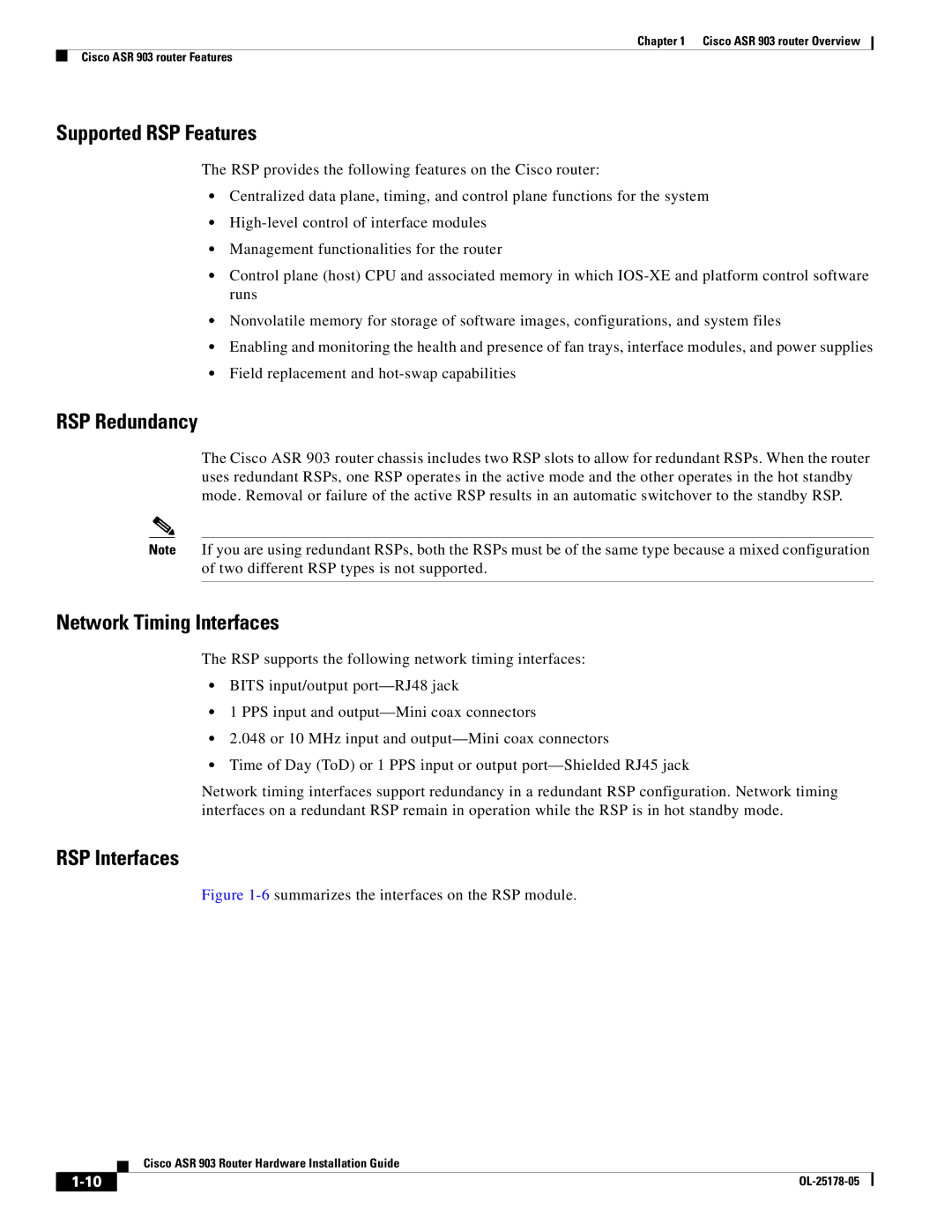
Chapter 1 Cisco ASR 903 router Overview
Cisco ASR 903 router Features
Supported RSP Features
The RSP provides the following features on the Cisco router:
•Centralized data plane, timing, and control plane functions for the system
•
•Management functionalities for the router
•Control plane (host) CPU and associated memory in which
•Nonvolatile memory for storage of software images, configurations, and system files
•Enabling and monitoring the health and presence of fan trays, interface modules, and power supplies
•Field replacement and
RSP Redundancy
The Cisco ASR 903 router chassis includes two RSP slots to allow for redundant RSPs. When the router uses redundant RSPs, one RSP operates in the active mode and the other operates in the hot standby mode. Removal or failure of the active RSP results in an automatic switchover to the standby RSP.
Note If you are using redundant RSPs, both the RSPs must be of the same type because a mixed configuration of two different RSP types is not supported.
Network Timing Interfaces
The RSP supports the following network timing interfaces:
•BITS input/output
•1 PPS input and
•2.048 or 10 MHz input and
•Time of Day (ToD) or 1 PPS input or output
Network timing interfaces support redundancy in a redundant RSP configuration. Network timing interfaces on a redundant RSP remain in operation while the RSP is in hot standby mode.
RSP Interfaces
Figure 1-6 summarizes the interfaces on the RSP module.
| Cisco ASR 903 Router Hardware Installation Guide |
